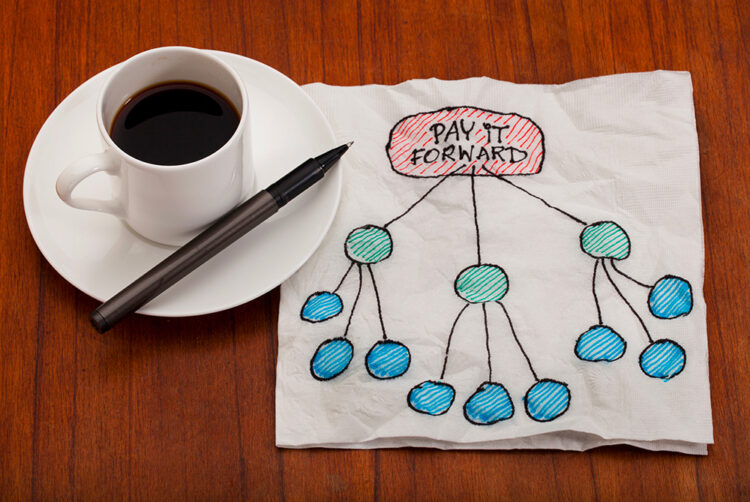Why you need a ‘Pay it Forward’ folder

Opinion
People genuinely want to help each other in this industry, but too often people fail to make the first move.
Years ago, I was in a unique position. As a senior vice-president with a top-10 publisher, I was a sought-after candidate for numerous job opportunities. Recruiters would call, but I politely declined each offer because I was happy with my job. I decided on a different approach: I paid it forward.
I began by creating a dedicated folder in my email, labelled “Pay It Forward.” In this folder, I stored notes from the recruiters who were reaching out and job seekers I knew, aiming to offer assistance by connecting them with each other.
On LinkedIn, many of my connections were posting open roles. This inspired me to create a post collecting open roles and tagging the person who was looking with the theme of encouraging everyone to pay it forward. The response was remarkable. These posts became immensely helpful for job seekers and recruiters. I upped my game and began adding tips and insights for the community.
The insights and tips I continue to share are to help people during a very competitive marketplace. People often forget some simple things when searching, like PDF your CV and sending a thank you note. Sometimes we often forget the easy things. As you continue to read headlines about layoffs or read “How to” articles about what to do with your CV or “Words to never say” on an interview, I share one simple thing that can help you get your next role.
Don’t wait around for opportunities
One of the key principles I continue to emphasise is the importance of networking. Networking allows you to stay top of mind and prevent being overlooked for potential opportunities. Your network might send you a link, email, or screenshot of something that could be relevant for you if they knew you were looking.
I encouraged job seekers to reach out to their network. The peers you reach out to might be comfortable in their job, like I was, and actually might share with you a role that someone reached out to them for. They don’t want to leave, but maybe you could be relevant to this position.
Referring you might not only help you but the recruiter as well, favours that can only help your brand in the future. Moreover, if you get introduced to a recruiter or company, maybe this is not the right role, but they could have another relevant position for you. All this because you made the active decision to network.
Some of the best roles are not posted. If you talk to folks, you might find out something that could be relevant. Ad agencies are always pitching new business, and if they win, they need to staff up. If you are speaking with them today, you might be considered for tomorrow. Also, roles are being discussed at the highest level every day. People are always asking for headcount. If they know you are looking, they might suggest your profile to their boss.
Create a journey that makes you smarter along the way
Make contact with former colleagues. People who are familiar with your work will see how you can add immediate value. They will also become powerful advocates, providing essential support in this competitive job market.
When targeting a specific company, knowing someone inside will significantly boost your chances. Networking allows you to leverage connections, increasing the likelihood of your CV being noticed and you being hired. Moreover, some companies offer incentives for employees who refer successful candidates, making it a win-win situation. Some people want to be nice but also use the opportunity to help them make money too!
Who does the hiring manager know? Do you have anyone in common? Anyone willing to go to bat for you? Use your network to help you whisper in their ear. Common connections facilitate introductions, leading to a trusted referral that could make all the difference in securing a position.
The little nugget one of the people in your network is going to give you in a conversation can lead you in a new direction or just stop you. For example, “have you thought about these types of companies?” “Do you really want to go there? They are not doing well.”
Knowledge is power, and your network will provide you with that power. Each conversation can provide a different perspective or help lead somewhere else. Your goal is to have more and more conversations and get smarter along the way.
I firmly believe that people genuinely want to help each other. When you express your needs to your network, they will likely step up to support you.
It’s all about paying it forward — just as I’m sharing this article with you, I encourage you to do the same within your network.
Marc Goldberg is the principal of media, marketing and advertising recruitment consultancy Stages Collective



